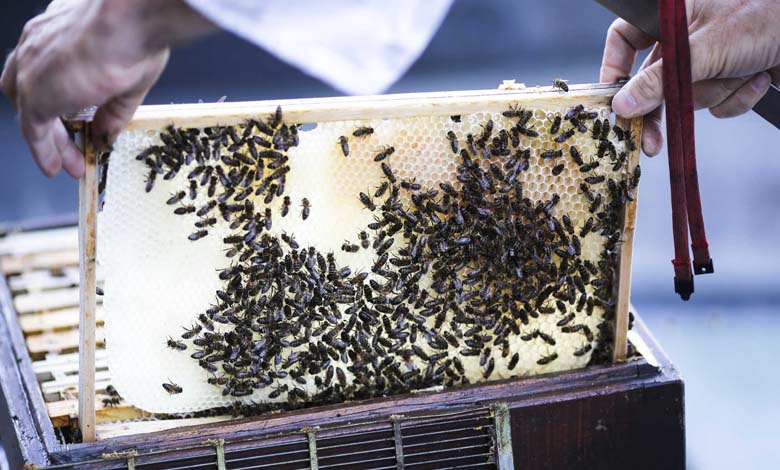Bees and Dogs “Challenge” Technology in Detecting “Cancer Scents”

In a breakthrough that could transform cancer detection, researchers from Michigan State University conducted a study showing that bees can “sense lung cancer” through the smell of a patient’s breath, thanks to their extraordinary sense of smell.
-
This “Affordable” Device Detects Cancer with a Drop of Blood
-
Experts: Lung Cancer Does Not Only Affect Smokers
Dr. Debajit Saha, a biomedical engineering specialist at the university, explained that “bees rely heavily on their sense of smell, while humans rely mostly on vision; the insect world is highly scent-dependent.”
The research team, which recently published its findings, revealed that “changes in breath odor caused by cancer growth can be detected by bees.”
After equipping the bees’ brains with electrodes, they were able to distinguish between the scent of a lung cancer patient and that of a healthy person with an accuracy of 93%. The bees could also differentiate between different types of lung cancer.
-
Study Settles the Debate on the Link Between Mobile Phones and Brain Cancer
-
“Promising” Discovery: Identification of Cancer-Causing Immune Cells
The team hopes to develop a system that allows patients to breathe in front of these electrodes, enabling a quick scent analysis and providing instant results.
Bees are not the only ones showing exceptional cancer detection abilities; research has shown that trained dogs, like those at the “Penn Vet” Center at the University of Pennsylvania, have a powerful sense of smell that allows them to identify cancer-related scents, surpassing the capabilities of current technological devices.
-
5 Ingredients in Products and Foods That Cause Cancer: Beware
-
King Charles loses one of his senses during cancer treatment
Cindy Otto, the center’s executive director, explained that dogs interact easily with humans, which facilitates effective information transfer. Researcher Clara Wilson noted that dogs perform this task effectively when they are interested in it, with play serving as a motivating factor.
In an effort to develop devices that replicate the scent-detection abilities of bees and dogs, researcher Amritha Mallikarjun continues to study “cancer scents,” emphasizing the importance of creating precise diagnostic technologies that mimic animals’ sensory abilities.












